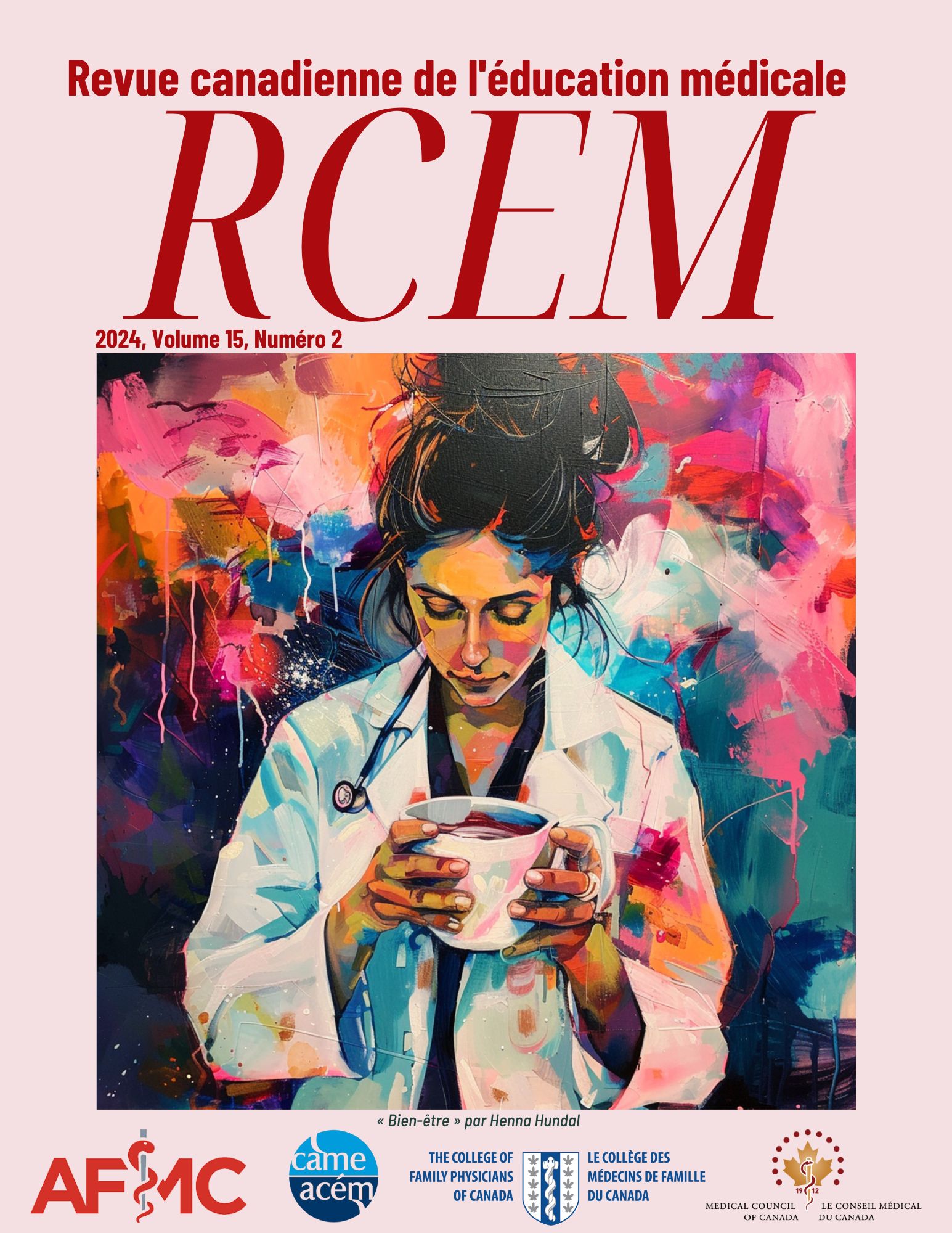L'attribution d'un crédit partiel lors de la réévaluation d'un questionnaire à choix multiple ne rend pas le processus d'évaluation plus équitable
DOI :
https://doi.org/10.36834/cmej.77957Références
Tang SF CS. Redesigning learning for greater social impact. Taylor’s 9th Teaching and Learning Conference.: Springer Nature; 2016.
Bereby-Meyer Y, Meyer, J., Flascher, OM. Prospect Theory Analysis of Guessing in Multiple Choice Tests. J Behav Decis Mak 2002(15):313-327. DOI: https://doi.org/10.1002/bdm.417
Kelly S, Dennick R. Evidence of gender bias in True-False-Abstain medical examinations. BMC Med Educ 2009;9:32. DOI: 10.1186/1472-6920-9-32. DOI: https://doi.org/10.1186/1472-6920-9-32
Bond AE, Bodger O, Skibinski DO, et al. Negatively-marked MCQ assessments that reward partial knowledge do not introduce gender bias yet increase student performance and satisfaction and reduce anxiety. PLoS One 2013;8(2):e55956. DOI: 10.1371/journal.pone.0055956. DOI: https://doi.org/10.1371/journal.pone.0055956
Goldman L. The Betrayal of the Gatekeepers: Grade Inflation. The Journal of General Education 1985;37:97-121.
Téléchargements
Publié
Numéro
Rubrique
Licence
© Janeve Desy, Adrian Harvey, Kerri Martin, Christopher Naugler, Kevin Mclaughlin 2023

Cette œuvre est sous licence Creative Commons Attribution - Pas d'Utilisation Commerciale - Pas de Modification 4.0 International.
La soumission d’un manuscrit original à la revue constitue une indication qu’il s’agit d’un travail original, qu’il n’a jamais été publié et qu’il n’est pas envisagé pour publication dans une autre revue. S’il est accepté, il sera publié en ligne et ne pourra l’être ailleurs sous la même forme, à des fins commerciales, dans quelque langue que ce soit, sans l’accord de l’éditeur.
La publication d’une recherche scientifique a pour but la diffusion de connaissances et, sous un régime sans but lucratif, ne profite financièrement ni à l’éditeur ni à l’auteur.
Les auteurs qui publient dans la Revue canadienne d’éducation médicale acceptent de publier leurs articles sous la licence Creative Commons Paternité - Pas d’utilisation commerciale, Pas de modification 4.0 Canada. Cette licence permet à quiconque de télécharger et de partager l’article à des fins non commerciales, à condition d’en attribuer le crédit aux auteurs. Pour plus de détails sur les droits que les auteurs accordent aux utilisateurs de leur travail, veuillez consulter le résumé de la licence et la licence complète.











